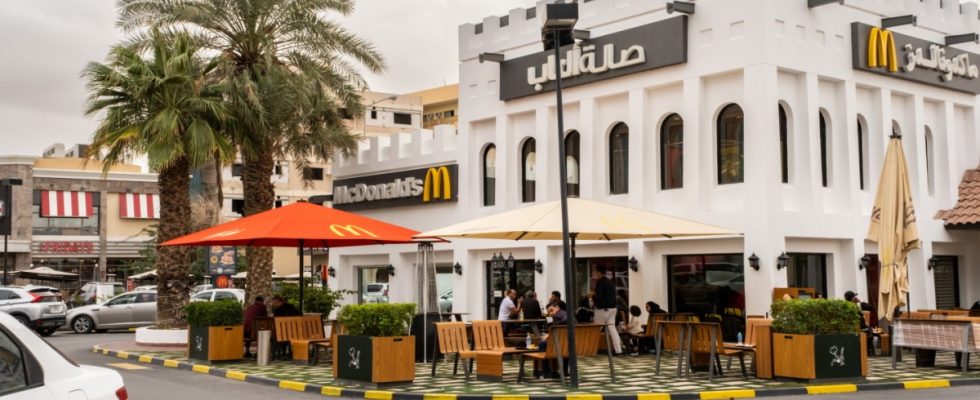The McDonald’s in the capital of Qatar is beautifully located, overlooking palm trees and the sea. It’s a warm winter evening, the tables are outside. But they are completely empty, there are large white, laminated information letters stuck to the table surface that almost beg you to order a few hamburgers here: You are hurting the wrong people with the boycott, the restaurant is locally owned.
It didn’t help, the tables remain empty, like in many other branches in the Middle East and North Africa. In protest against US and European support for Israel, many people from Morocco to Iraq have stopped buying US products. In Turkey, members of the AKP youth organization sit in Starbucks cafes and ask customers why they drink the blood of Palestinians. An app has been developed in Egypt that allows people to buy local products.
It’s not a large-scale campaign, but rather many small ones in which Egyptians publish lists on Facebook that include brands like Pepsi and Starbucks, Burger King and water from Nestlé, which comes from neutral Switzerland, but you don’t take it that seriously .
It’s a silent protest, but it has an impact
“I lost about 20 percent of my sales,” says Ali, a kiosk owner in Cairo. He has removed Pepsi and Coca-Cola from the range, but there are now local alternatives: Spiro Spathis and Oso Blanco. People now bought the water from a local provider whose logo adorned a Palestinian flag. The sales of the soda manufacturer Spiro Spathis are said to have increased fivefold. McDonald’s and Starbucks, on the other hand, complain about significant declines in sales.
Calls for economic boycotts have long been part of the Palestine conflict. The Boycott, Divestment and Sanctions (BDS) movement has been calling for a boycott of Israel for almost 20 years. Their actual successes are far less than the attention that the group, which is repeatedly accused of anti-Semitism, receives. The latest wave of boycotts is not organized, it is a silent protest with a big impact. McDonald’s announced a few days ago that the protest had “significantly affected” sales, with its share price falling by four percent. Although McDonald’s is operated from the USA, many restaurants are owned by local franchisees. Some Israeli branches even gave out free food to soldiers after the Hamas terror attack. But other attempts to distance themselves also failed: franchises in Saudi Arabia, Oman, Kuwait, the United Arab Emirates, Jordan, Egypt, Bahrain and Turkey collectively pledged more than $3 million to support the Palestinians. Sales still remained weak.
A few days ago, the boycott was finally expanded – to a completely different product: hashish dealers in Morocco announced that they would no longer deliver their goods to Israel. A Moroccan dealer told Israeli broadcaster N 12 that he did not agree with Israelis making a living selling Moroccan hashish while the people of the Gaza Strip lived in inhumane conditions.

